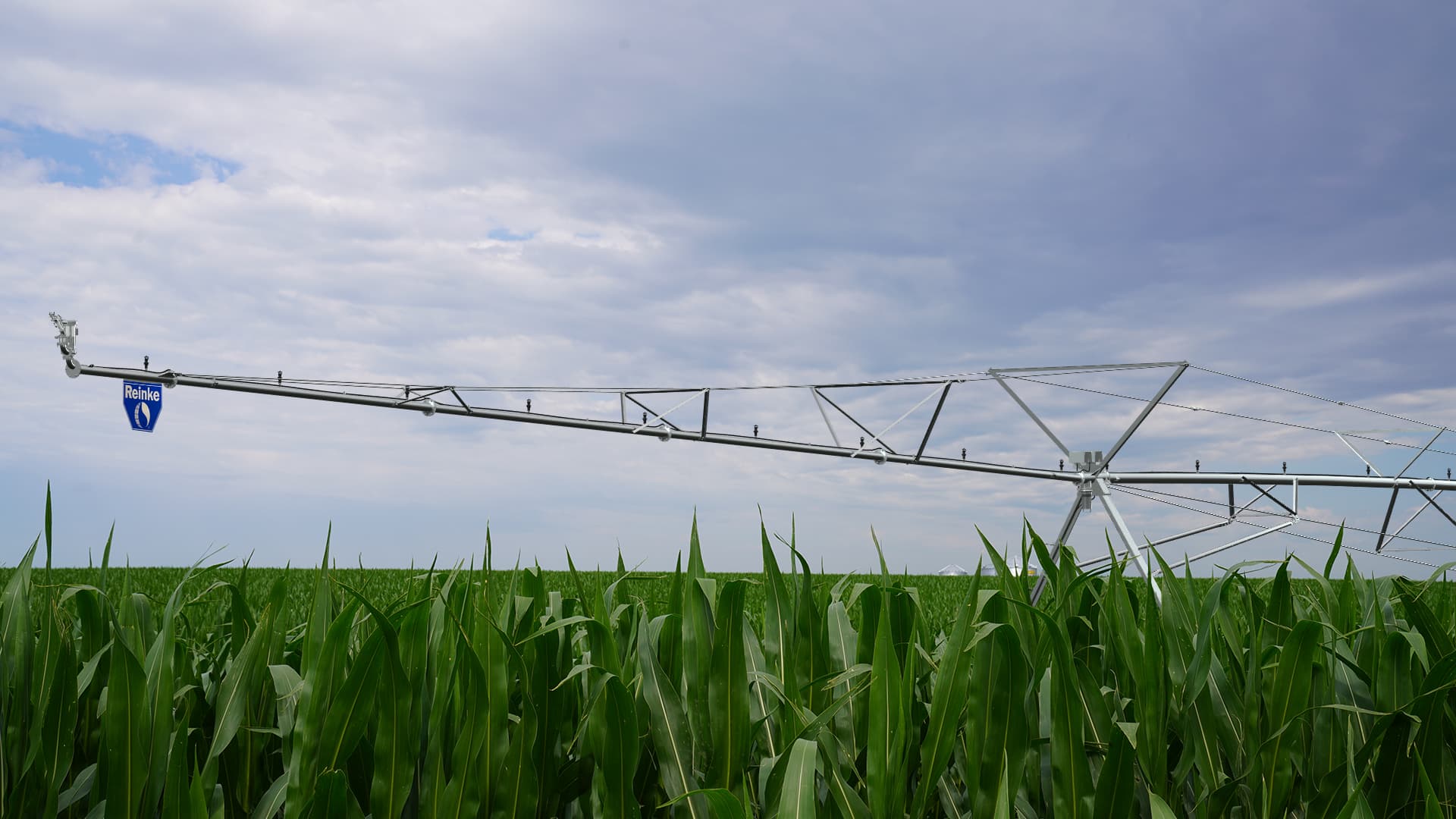Key Takeaways:
- Climate change is affecting irrigation needs, necessitating smart solutions.
- Precision irrigation technologies can optimize water use and offer economic benefits.
- Data collection and AI-driven tools are enhancing real-time irrigation decision-making.
- Advancements in automation, IoT, and AI are influencing the future of irrigation.
- Regulatory frameworks are evolving to balance conservation goals with agricultural needs.
As climate patterns shift, growers are facing new challenges in water management. Cody Bailey, Director of Product Management at Reinke, sat down with us to discuss approaches to adapting irrigation strategies, leveraging new technologies, and maintaining both sustainability and economic efficiency.
Climate Change and Water Management
Variability in weather patterns is influencing irrigation requirements, making efficient water use a priority. Studies have shown that irrigation demand is strongly correlated with precipitation patterns, with reduced rainfall increasing irrigation needs in many regions. Additionally, temperature variations impact water demand, particularly in northern regions where higher temperatures lead to increased evapotranspiration rates.
According to Bailey, “Irrigation practices continue to evolve, and many growers adopt water management solutions to support crop health. Some have had to adjust planted acres due to water shortages, while others, with stable water access, continue operations.”
To adapt, growers are implementing precision irrigation systems that utilize real-time data on soil moisture and evapotranspiration. “Rather than relying on traditional methods, modern tools enable data-driven decision-making to maximize water efficiency,” Bailey explains.
Economic Viability of Smart Irrigation Solutions
While there are upfront costs, precision irrigation systems can provide long-term economic benefits. “Technologies such as GPS-guided systems and variable rate irrigation (VRI) help reduce water and energy consumption while supporting crop yields,” says Bailey. “The return on investment depends on factors like initial costs, crop type, and local water conditions. Remote control of irrigation based on real-time data can further enhance efficiency.”
The Role of Data in Irrigation Decisions
Modern irrigation solutions rely on data to improve efficiency. Key metrics such as soil moisture, weather forecasts, and crop water needs guide decisions. “Technology is most useful when it translates data into actionable insights,” Bailey notes. “Platforms like Reinke's ReinCloud® provide real-time monitoring and control of irrigation systems through an intuitive interface.”
By integrating smart data solutions, growers can optimize irrigation cycles and ensure effective water use with minimal manual intervention.
The Future of Smart Irrigation
Automation, IoT, and AI are expected to play a larger role in agriculture. “These technologies can improve irrigation precision and efficiency,” Bailey says. “Reinke continues to invest in robotics and data connectivity to support precision irrigation. The introduction of the E3™ precision series of center pivots represents a step forward in irrigation technology.”
Addressing Adoption Barriers
Despite the benefits, adoption of advanced irrigation systems remains limited due to cost, infrastructure constraints, and knowledge gaps. “Financial incentives, training, and education can help drive adoption,” Bailey explains. “Reinke collaborates with government agencies and agricultural organizations to support awareness and education on efficient irrigation practices. Some initiatives also introduce irrigation concepts to younger generations to build future expertise.”
Scalability of Sustainable Irrigation
Sustainable water management is applicable to both large and small farms. “Precision irrigation and water-efficient practices can be tailored to different operations,” Bailey states. “Technologies like Reinke’s VRI system support efficient water use across varying scales. Additionally, collaborations such as Reinke + CropX + You integrate multiple technologies to enhance irrigation efficiency.”
The Role of Policy & Regulation In Smart Irrigation
Water conservation policies continue to shape irrigation strategies. “Regulatory frameworks impact water allocation and usage,” Bailey observes. “While well-intended, some regulations can pose challenges for growers.”
Industry leaders and policymakers can work together to develop regulations that support both environmental sustainability and agricultural productivity. “By collaborating with stakeholders, we aim to advocate for policies that balance conservation goals with growers' operational needs,” Bailey concludes.
Looking Ahead
The future of irrigation involves continued technological advancements in automation, data integration, and efficiency. “With evolving tools, growers can enhance productivity and resource management. Reinke remains committed to providing solutions that support efficient irrigation in an evolving agricultural landscape.”


